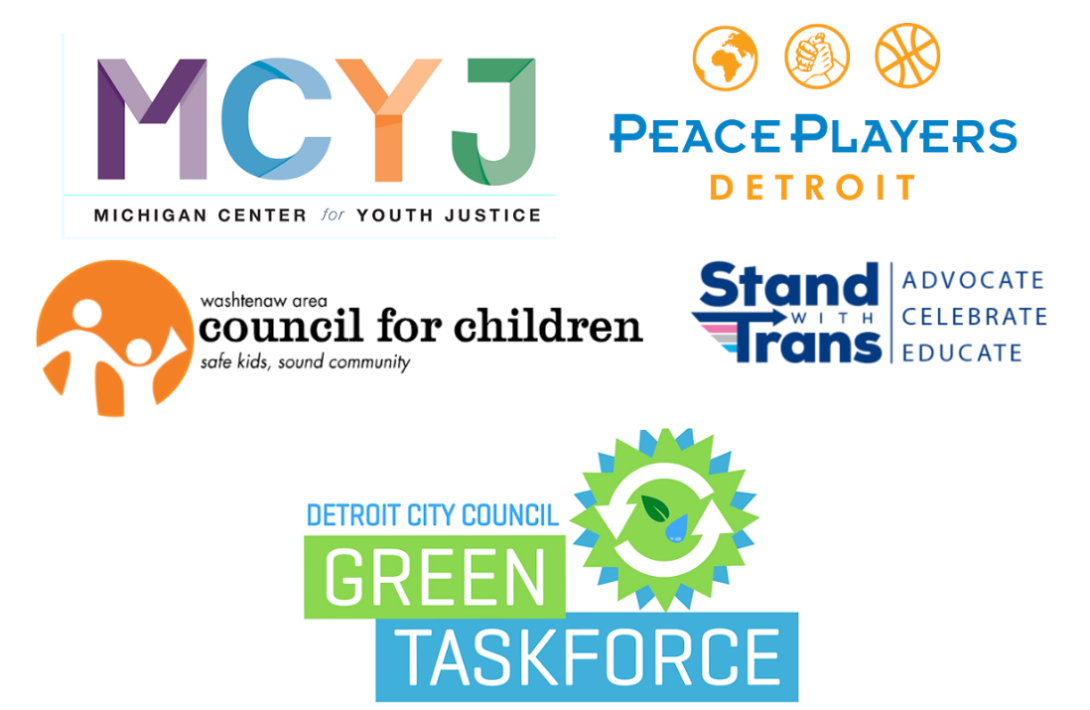Last month, the Ginsberg Center’s Community Technical Assistance Collaborative (CTAC) wrapped up work on seven exciting community-driven projects from the winter semester. As Ginsberg’s in-house data analysis and evaluation program, CTAC supports nonprofits, schools, and government organizations in building capacity to carry out their work, tell their stories, and secure funding. CTAC matches graduate students with community projects that allow them to meet their educational goals, apply their skills in real-world contexts, and make a meaningful impact. To date, CTAC students have collaborated with almost 50 community organizations in southeastern Michigan – helping them to identify and understand data related to the questions that matter to them.
Last semester’s projects collected and analyzed data on issues ranging from the environmental impact of demolition projects in Detroit, to the use of restraints on children in the juvenile justice system, to resources for transgender youth. Read on to learn more about these partnerships!
Detroit Green Task Force (DGTF)
DGTF is a small nonprofit working towards a more environmentally sustainable Detroit. At their request, CTAC students researched how much waste has been diverted to landfills from City demolition projects. Ultimately, this data will allow DGTF to advocate for deconstruction as a more sustainable alternative to demolition: one that allows for the reuse and recycling of materials that would otherwise go into landfills.
Michigan Center for Youth Justice (MCYJ)
MCYJ works to advance equitable youth justice policies and practices that protect young people and help them achieve their full potential. CTAC students worked independently and in collaboration with the School of Public Health’s STATCOM initiative (Statistics in the Community) to gather and analyze data on the use of restraints and seclusion in Michigan juvenile facilities. Their work will allow MCYJ to advocate for policies that will hold facilities accountable and improve children’s safety in the Michigan justice system.
PeacePlayers uses sports to build connections between youth across the globe, fostering cross-cultural understanding, peace, and leadership. CTAC students designed a survey for the organization’s new leadership program that measured its impact on participants’ sense of self-empowerment and career readiness. This survey will allow PeacePlayers to tailor the program to best serve the needs and priorities of the young people they work with.
R.O.A.D. 2 Successes is an independent living program that aims to ensure a successful transition into adulthood for Michigan foster care youth. CTAC students created a guide that R2S leaders will use to analyze data related to their programming, giving them a sustainable tool for evaluating and improving their services.
Stand with Trans empowers and supports transgender youth and their loved ones; their vision is a world where gender-diverse youth are validated and celebrated. Students used the vetting tool developed by a previous CTAC team to identify resources for transgender and nonbinary youth, which will populate a new online library. This library offers trans youth and allies free access to a wide variety of life-affirming resources, including trans stories, legal advice, crisis resources, scholarship information, and much more.
State Appellate Defender’s Office (SADO)
SADO offers compassionate legal representation for individuals appealing felony convictions. Building on the work of a previous CTAC team, students developed a survey for currently incarcerated SADO clients; this data will be used to understand client satisfaction, improve attorney-client relationships, and strengthen clients’ understanding of the appeals process.
Washtenaw Area Council for Children (WACC)
WACC aims to promote child safety and well-being – and to prevent child maltreatment, abuse, and neglect – through educational programs for children, parents, community members, and youth-serving professionals throughout Washtenaw County. CTAC students worked with WACC to develop a google sheets-based data management system with automated features, giving WACC quick and easy access to information about their programming, participation, and impact.
For more information about how to connect with CTAC as a campus or community partner, visit the program's webpage or contact [email protected].

